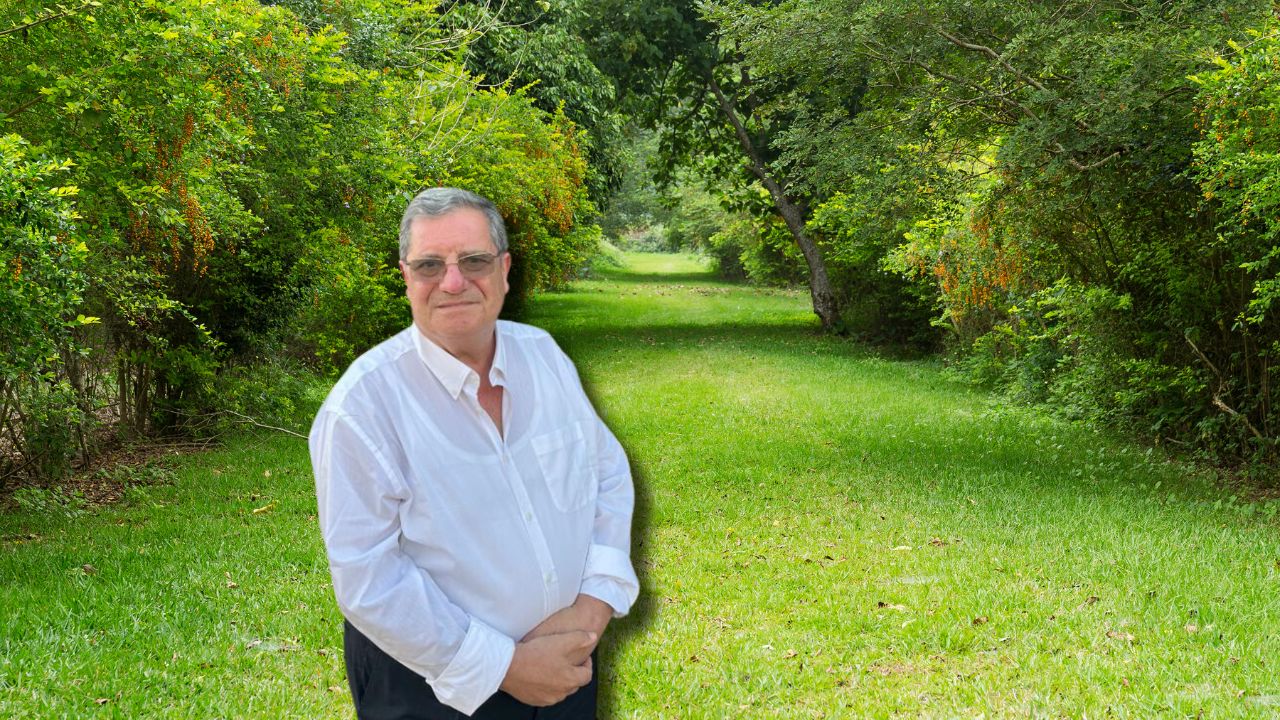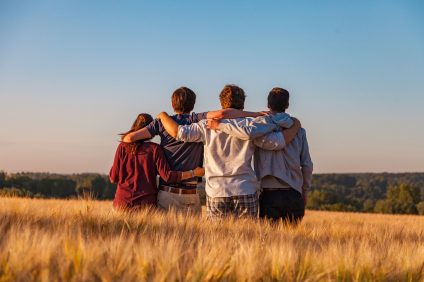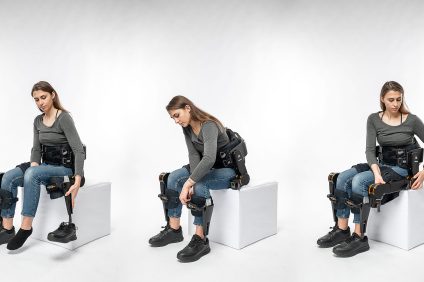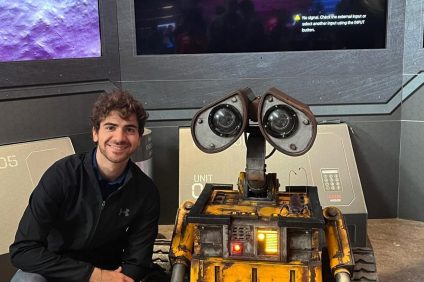Professor Gabriele Sganga is the director of the Emergency Surgery and Trauma department of the Agostino Gemelli University Polyclinic Hospital in Rome which was the best hospital in Italy for the third consecutive year and the only Italian hospital in the world top 40, according to the ranking drawn up by the American magazine Newsweek in collaboration with Statista Inc.
He is a specialist in General Surgery and Thoracic Surgery, deals with infections and sepsis in surgery and is a Confirmed Associate Professor of Surgery, Institute of Clinical Surgery, Division of General Surgery and Organ Transplantation. He is among the few surgeons in the world who are experts in sepsis in surgery, because infections and sepsis are dealt with by infectious disease specialists or intensivists but surgeons are few. He has, among other things, a notable number of publications to his credit and has given over 670 invited talks all over the world including China, Japan and Russia.
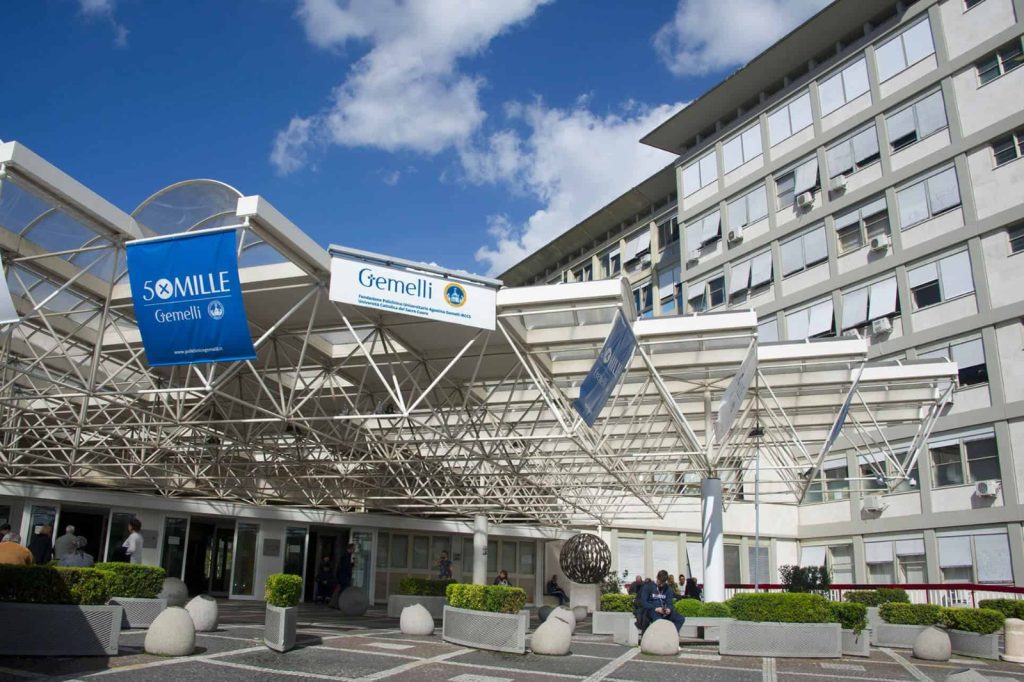
Professor, would you like to briefly tell me about your professional path and how you developed your passion first for medicine and then surgery?
I started my studies without wanting to go to school so, to go to first grade, my mother bought me a ball, gave it to my teacher and told him "if the boy comes to school, after a month gives him this ball." I went to school just to chase that ball and discovered that I loved studying, in fact, I was always the one at the front desk. I was the top of the class who passed the homework to the others but, I lived in a poor village, with many people who needed education, therefore, it was not difficult to be the top of the class. I went to primary school and middle school in Nicotera Marina and then we moved to Tropea which is the city that adopted me, because I spent my adolescence in Tropea, I went to middle school for two years, high school, I I met friends, schoolmates, I started socializing, and I met the woman who would later become my wife. I attended the Pasquale Galluppi classical high school, in Tropea, with a great principal who was Don Pantano. My mother was very ill, in fact, a few months before my high school graduation she unfortunately passed away. Immediately after graduation, Don Pantano, knowing that due to my mother's illness I had acquired a certain vocation, not so much for medicine but for medical practice, almost charitable, told my father that in Rome there was the Catholic university.
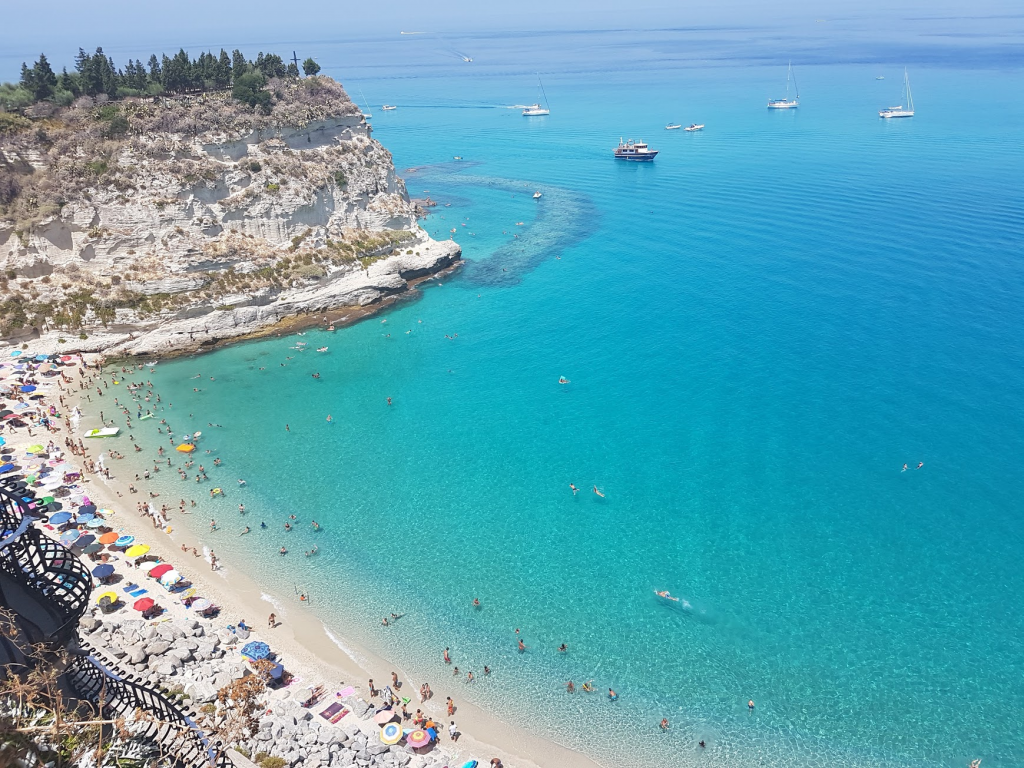
To attend that University, a letter of introduction from the Bishop would have been needed which he would have thought of, so, with this letter of introduction, which everyone had, because it was a required document, I found myself taking the competition in September 1972. We were not as many as today, we were around 800 candidates for 150 places. So I entered the Catholic University to study medicine. I must say that the first years were very hard because unlike elementary school where there were children with a culture that was certainly lower than mine, there I instead found people who had much higher cultural levels than mine. There was also a small group of colleagues who came from abroad, although speaking Italian, who were children of diplomats; there were those who came from England, those from Switzerland, those from Iran, all people of very high culture with whom you had to deal. This was a very important training ground for me which also allowed me to explore a broader field, don't forget that we are talking about an era in which there was no internet, everything was on paper, we learned from books and saw something in television. I happily concluded my medical degree in 1979 by doing a thesis in clinical surgery, because in reality I had a certain vocation for facts, for visible things.
Working as a surgeon involves making difficult decisions and moments of great pressure. How do you prepare to manage these situations which are stressful and often complex?
Given that every job has its responsibilities, its complexities, its educational and training aspect, I must say that, in the past, there was a way of learning, which was to "see, do and teach", in addition to this, to reach certain levels, you have to put in something more, you have to put in enthusiasm and passion but, above all, what I have noticed in certain environments, you have to demonstrate to the people around you that you are reliable, capable and continuous. It was these small skills that allowed me to be in a great university and surgical environment. You also need to be willing to do something more, in fact, when my professor told me that, for completeness, it was necessary to know English, and they suggested that I go to the United States for a few years, I realized that it was advice absolutely optimal and an opportunity not to be missed. So I found myself, a year after graduation and for a couple of years, in a Shock and Trauma center in Baltimore at Meryland University. We are talking about the first Shock and Trauma center in the world, where they started the concept of taking patients even by helicopter. It is clear that the comparison with other colleagues, the seeing of the operational, surgical and surgical advances, allowed you to train and then apply, according to the branch you decided on, also because surgery already at the time was starting to have all 'internal self of the branches. Originally there was general surgery, the general surgeon did almost everything. My chair director, Professor Castiglioni, was a cardiac surgeon, neurosurgeon, thoracic surgeon, vascular surgeon, today something like that would be really inappropriate. Today, however, there are fields where you need to be specialists, you need to identify a pathology and branch out into sectors in order to achieve maximum excellence.
What does it mean to be a good surgeon?
Surgery is also made up of unexpected events, something that you don't expect to happen, but it happens and therefore you need to know the techniques, the methods, the instruments, the mechanisms that allow you to deal with a possible complication. The good surgeon is not only the one who operates a lot, but he is the one who repairs the damage. This means that something more than simple manual skills is needed, otherwise basic surgery, if it weren't for these unforeseen and unpredictable problems, would most of the time be routine because there are those who now only perform a few operations and it makes hundreds, thousands. There are those who perform 60 operations a week of one type of surgery, however, sooner or later some unforeseen event can happen to them too and in that case superior culture is necessary. This is what my teachers taught me, that great culture is also needed. This creates the great surgeon, also because the great surgeon also emerges from routine and it is from there that new interventions, i.e. transplants, are born. I originally didn't do it organ transplants I have always done general surgery and emergency surgery which is what I am currently doing and I have mainly dealt with infections and sepsis in surgery since the first day of my degree. This is my battlefield, but I had to deal with it because there was a need for people to help, because these interventions were often very long. Now we have reached an optimization, so a liver transplant today can last 3 or 4 hours, but the first liver transplants that were done, at least here, but everywhere in the world, lasted 12 hours or even more therefore, the surgeons who operated sometimes also needed replacements and assuming that they completed the operation, because the competence was totally theirs, then there was a part, for example just closing the patient, which could also mean 2 or 3 hours of work, because you had to make sure there were no hemorrhages and, that poor surgeon who had already done many hours of transplantation couldn't do it, so, someone else had to intervene to complete the work.
Professor, how do you relax?
This is a big word, let's say that you have to find anything to distract yourself. Generally relaxing means having days off, being on holiday, or sometimes it means having hours or often even minutes, so it all depends on where you are. It happens that I need to relax even at work so maybe I go back to my studio I sit in an armchair and think, I think about what I have done or what I haven't done but it is always a method, therefore, I don't know how relaxing it is however, it is a method of comparison with oneself which is always important. Then there's music, DIY, or even doing anything at home that can be fixed, something electrical or carpentry. The other thing I am very happy to do is to return when I can to Calabria where I maintain an excellent relationship not only with people, with friends but, precisely, the contact with the land and with the environment, and the territory and the environment is something that reassures me a lot.
Professor, you are therefore very attached to your homeland which is Calabria, how do you maintain contact with your roots?
The relationship with Calabria comes not so much from medicine but from friends. I was born in Nicotera where I have a house and lived in Tropea and what attracts me and my wife to return are the people, classmates from high school, middle school, or even people we met during construction with which actually created affections and then, it happens that cultural projects are also born from here. For example, I tell you that Nicotera has a characteristic, it is the city of the Mediterranean diet. We surgeons deal a lot with nutrition in our patients, it is part of our professional kit, because we do both artificial and parenteral nutrition, so we must know the nutrients that are given and what is given, after all, is very similar to the Mediterranean diet . An American, Ancel Keys, did some studies in Nicotera in the '59s and '60s because they noticed that there were very long-lived people there. These long-lived people ate the food that was there, there was the sea and therefore they ate blue fish, there was the hill and therefore they ate extra virgin olive oil and vegetables. Furthermore, people walked a lot, there was no car to go to work like today and therefore all this led to very low cholesterol values and fewer cardiovascular accidents. From here they understood that that lifestyle and that type of diet led to low cholesterol values; This did not happen only in Nicotera but throughout the Mediterranean, there is no peculiarity but the study was done in Nicotera. Why did I say this, because some colleagues who deal with the Mediterranean diet in Nicotera also involved me in these aspects and therefore I happened to be able to collaborate with them also culturally in these events as well as in the conference events that concern our profession in particularly the medical-surgical one.
Professor, can you tell me about a particular memory linked to Calabria?
Yes, I'll tell him. I'll tell you something that happened to me, and which brought me even closer to Calabria. We had a house in Nicotera Marina and the part that belonged to me was a ruin because, for various reasons, it had been neglected. Some people had thought that these ruins were dangerous, but they weren't at all, so suddenly it turns out that there was a possibility that they would tear it down. An architect cousin of mine advised me to restore the house and so I did, despite having lost all contact with my country of birth where I only lived for my first 6 years. The work on the house went very slowly and I slowly started going there. At the beginning no one knew me and at most they knew me as the son of the secretary Sganga because my father was a well-known and respected man, perhaps they didn't even know that I was a doctor. An aunt of mine, my father's sister, lived there and it happens that a big boy of about 28 years old who weighed 180 kilos, drug addicted, who drank a lot, has liver failure. The doctors in the area had realized that he would need a liver transplant and this aunt of mine thought of turning to me. So she called me and told me that Giovannone, because that's what they called him, needed a transplant. I take action with the process to follow and after some time we finally manage to admit him to begin studying him for the transplant. First of all we made a plan to try not to make him drink anymore and not to make him take drugs anymore and above all to make him lose weight because at 180 kilos it was difficult to be able to have a transplant, I must say that the interns were very good and little by little they managed to get him lose weight up to 120, 130 kilos. During this weight loss, liver failure worsens, to the point that almost urgent liver surgery is necessary. We wait, because it wasn't easy to get organs especially in that era, today donations have certainly improved and then he had a particular blood type. The fact is that on July 24 of one year, an organ arrives for him. I had to leave for holidays on July 24th. The head doctor, knowing that it was a somewhat difficult transplant, called me at night to tell me to do this delicate transplant together, also because I had followed the patient and knew his entire medical history; so he encouraged me and we did the transplant successfully. In short, in the end everything goes well and Giovannone returns to his town. In September I return to Nicotera Marina and I feel pointed out by people, I went to buy tomatoes and they didn't make me pay, in short, suddenly... everyone knew who I was.
I imagine that friends and family frequently ask you for medical advice, even informally. What was the most extravagant request you received?
Actually, quite a few have happened to me. During the first years of my degree, a lady, who was a very good friend of my mother and who also followed her during her illness, had a melanoma. At the time there was a therapy that later failed that they were doing in a Roman oncology hospital where a professor was experimenting with the idea of heating the blood so it was necessary to give a sort of transfusion to the patient by heating the blood. To do this, large quantities of blood were needed to change the patient's blood. The human body contains about 5 liters of blood, so 3 or 4 liters of blood could also be needed. The lady's husband calls me one morning telling me he needs 3 or 4 liters of blood, he thought it was an easy thing to do but, clearly, his request was an absurd request. Or when they called me from home to tell me about a situation, which makes you understand that the person is very serious, he is vomiting blood, he is pale, he is very sweaty, so, without knowing it, they tell you on the phone that that patient has hemorrhagic shock and then you have to tell him that they need to call an ambulance immediately and have him taken to the hospital. They ask me if they should take him to Gemelli, but the patient was in Policoro so I told them to take him immediately to Policoro hospital. Once there, the doctors told him that he had a bleeding duodenal ulcer. Well, sometimes you have to understand not only the gravity but that there are paths to take in the emergency and in the place where you are. However, often those on the other side do not receive this type of response positively because they think that you want to get rid of the problem. I mean, in short, that behind the requests that are made, even the most particular ones, there are often enormous dramas and diagnoses are perceived.

